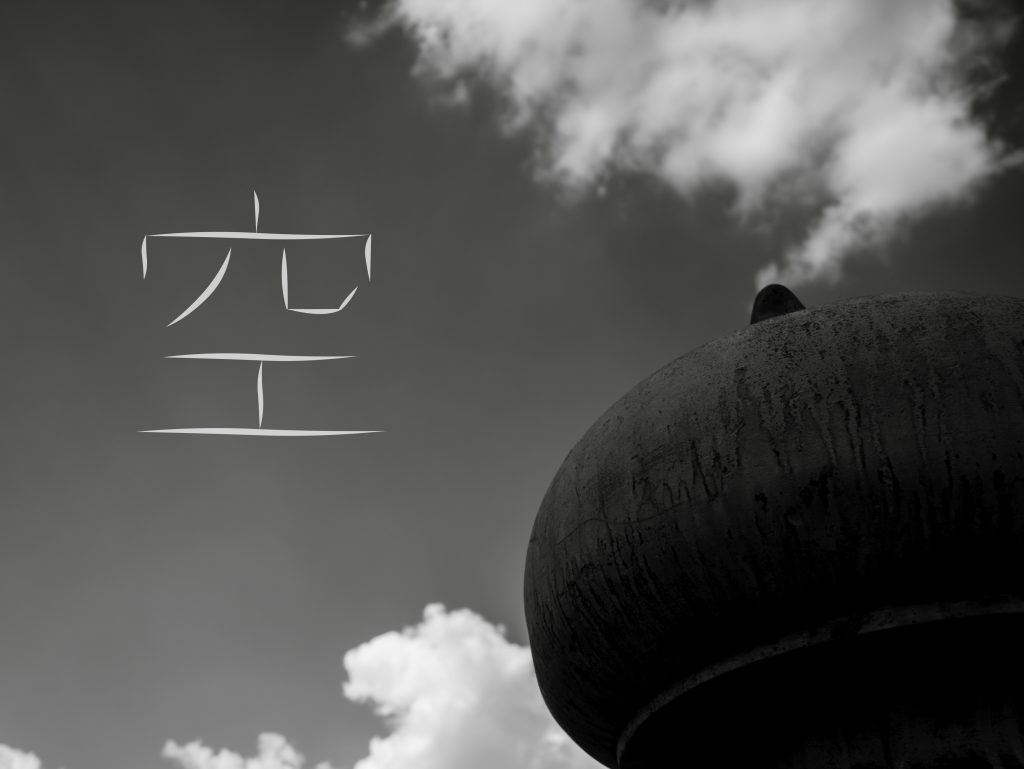
歳去歳来聴不変
莫言秋後遂為空
紀
pinyin
suì qù suì lái, tīng bú biàn
mò yán qiū hòu, suì wéi kōng
texte scandé possible
suì qù | suì lái | tīng bú biàn
ˊ ˋ | ˋ ˊ | ˉ ˊ ˋ
mò yán | qiū hòu | suì wéi kōng
ˋ ˊ | ˉ ˋ | ˋ ˊ ˉ
kundoku-訓読 : lecture japonaise à chanter
歳去り 歳来て 聴けども変ぜず
言ふことなかれ 秋の後に遂に空しくすることを
kundoku hiragana
としさり としくいて きけどもかはらず
いふことなかれ あきののちに つひにむなしくすることを
traduction
les années vont
les années viennent
à les entendre rien ne change
ne dis pas qu’après l’automne
il ne reste finalement que du vide
discussion
sensibilité Heian : unir la nature (le cri des cigales, signe de l’automne) et la philosophie bouddhique (impermanence, vacuité), tout en rejetant une vision nihiliste : la permanence dans l’éphémère impermanence
options finales
sens pessimiste : « finir en vain »
sens bouddhique : « se fondre dans la vacuité »
sens poétique-naturaliste : « se dissoudre dans l’air »
auteur
紀 長谷雄
ki no haseo
845-912
joue avec un démon
gagne un femme avec qui il ne doit pas coucher avant 100 jours
amoureux, ne résiste plus au bout de 80
elle se liquifie car elle avait été créé à partir de bouts de cadavre et l’âme requiert 100 jours pour être formée
en deuil, il attaquera le démon
English translation
Kundoku – Japanese reading (to be chanted):
Toshi sari / toshi kiite / kikedomo kawarazu
Iu koto nakare / aki no nochi ni / tsui ni munashiku suru koto o
The years go,
the years come,
yet in listening, nothing changes.
Do not say that after autumn
what remains is finally only emptiness.
Heian sensibility: uniting nature (the cry of cicadas, sign of autumn) with Buddhist philosophy (impermanence, vacuity), while rejecting a nihilistic view: permanence within fleeting impermanence.
Possible final readings:
- Pessimistic: “to end in vain.”
- Buddhist: “to merge into emptiness.”
- Poetic-naturalistic: “to dissolve into the air.”
Ki no Haseo 紀長谷雄 (845–912)
He once played with a demon.
He won a woman, under the condition that he should not sleep with her for one hundred days.
In love, he could not resist and after eighty days broke the rule.
She dissolved away — for she had been created from fragments of corpses, and a soul needs one hundred days to be fully formed.
In mourning, he later fought against the demon.
日本語訳
訓読 ― 日本語での朗読(唱えるためのもの)
としさり としくいて きけどもかはらず
いふことなかれ あきののちに つひにむなしくすることを
歳は過ぎ、
歳はまた来る。
耳にしても、その声は変わらない。
秋の終わりに、
すべてが空しくなるなどと言ってはならない。
平安の感性:自然(秋のしるしとしての蝉の声)と仏教の思想(無常・空)を結びつけ、虚無主義を退ける ― 無常の中の常。
最終的な解釈の選択肢:
- 悲観的解釈:「ついには無駄に終わる」
- 仏教的解釈:「ついには空に帰する」
- 詩的・自然的解釈:「ついには大気に溶け入る」
紀長谷雄(845–912)
かつて鬼と戯れ、
百日間は女と交わってはならぬ、という条件で女を得た。
しかし恋に溺れ、八十日で耐え切れず抱いてしまう。
女は溶けて消えた ― 死体の断片から作られた存在で、魂が形を持つには百日が必要であったのだ。
嘆きののち、彼は鬼に挑みかかった。

Vous devez être connecté pour poster un commentaire.